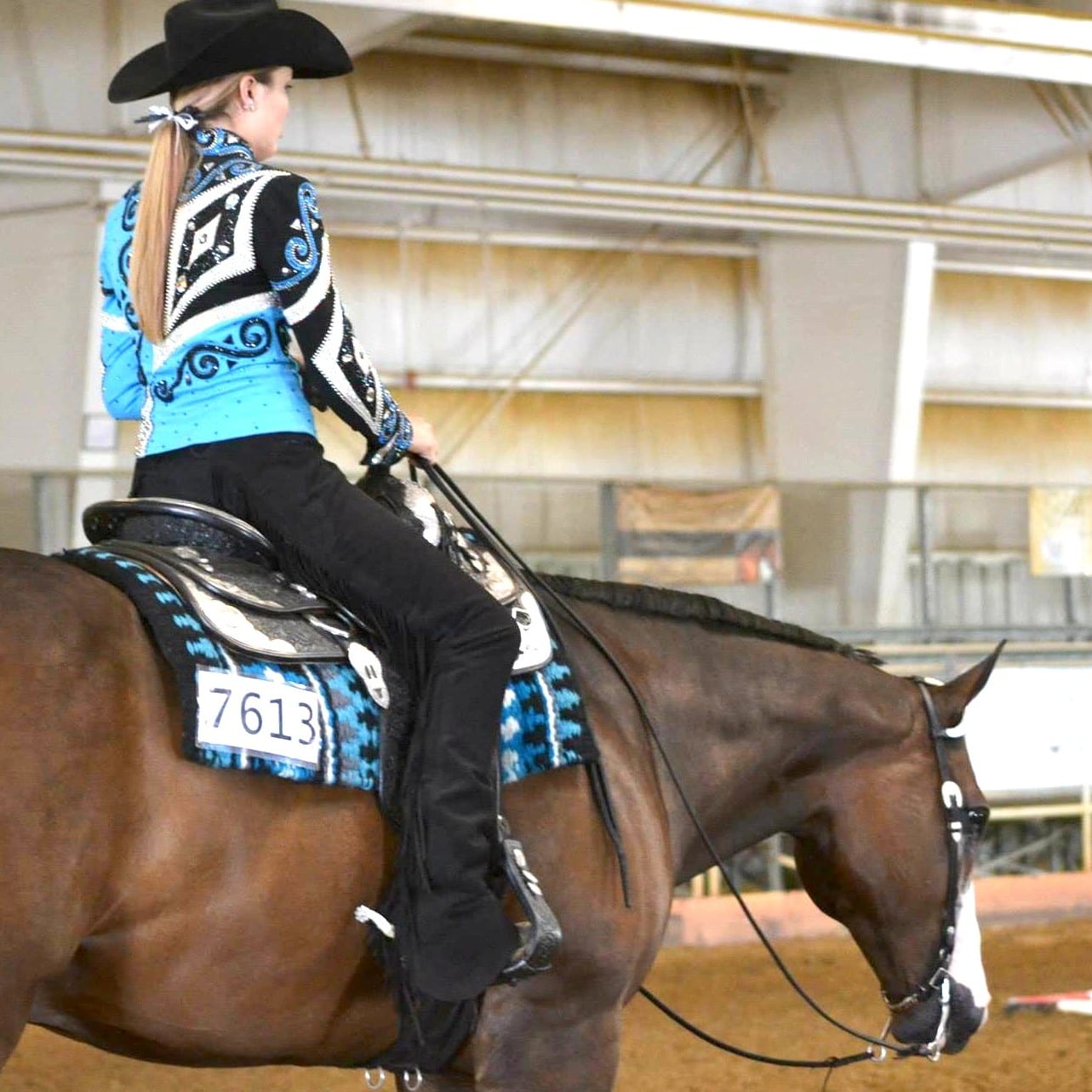As the clock strikes midnight on January 1st, 19 year olds everywhere begin dreading what is to come in the year ahead. The uncertainty of becoming an amateur looms in front of them as they leave their youth years behind. Many see this as the end.
Fortunately, it is not. As these young adults step up into amateur, they are facing a whole new adventure. The mindset and goals of amateurs vary vastly from those of youth… and that is a good thing! While the youth years are comprised of goal setting, long weekends, and racing the clock, amateurs have a little different time of it.
Here are some steps to take to make your journey into the world of amateur competition a little easier:
1. Reflect on your youth years
Moving into amateur, it is important to take a step back and look at all you accomplished as a youth. Many, if not all, set goals as a youth to qualify for the world show; win a world championship; show at Congress; earn top 10 in the nation; or complete your youth championship. Whether we hit these marks or fell short, it is important to look at the journey we took; the places we were fortunate enough to travel to; the people we met; the professionals and family members that gave everything so that we could have our moment in the spotlight; and most of all, the horses that got us there. Sometimes while we’re in the midst of the chaos, we forget to be completely grateful for where we are – just being able to show a horse, whether at an open show or the world show, is a blessing in itself.
2. Reassess your priorities
Taking the step up to amateur is the ideal time to reassess what is truly important to you and figure out where you would like to go within the horse show industry. This is the time to see where your passions truly lie, and set your sights on new goals. Focusing on becoming the best you can in one or two specific events will make the move to amateur far more exciting and fulfilling.
3. Try new things
As a youth, many of us are all pushing for the same goal – showing all around events and gunning for the weekend high point in hopes to earn a title by the end of the year, and whatever trophy or buckle comes with it. We push for those last few points, racing the clock in hopes that we can accomplish our goal by December 31st. As an amateur, though, the race against the clock is not a factor. If you wanted to take a step back and try a new event, it is completely acceptable. Working with a new horse or trying a new event with the horse you showed all through your youth years will make this journey more exciting and less daunting!
4. Invest in the future
As a youth, our goals are relatively short term. However, this is not the case as an amateur. Our amateur years do not have an expiration date. It is completely reasonable to take a couple years to bring a promising young horse up through the ranks as an amateur. It also makes taking time off from showing to focus on college a much less terrifying task. With college, though, comes equestrian teams- a chance to better your horsemanship skills and apply those skills to your time in the show pen. When viewing this transitional period as an opportunity to plan for the future, rather than as a curse, it eases the anxiety.
5. Get involved
Youth organizations are fantastic with drawing in youth and getting them involved with fundraising and fun activities. As an amateur, though, there are many more opportunities to have a say in the future of your club or organization. Amateurs have the chance to be part of their club’s board of directors, allowing them to have a say in the future of the club. Many organizations welcome new ideas. Your youth experiences can be used to move your club forward.
Furthermore, amateurs can easily take a show or two off from competing to learn a new skill and gain a new perspective of the horse show world. Ring stewarding and scribing at open and breed shows is a great way to learn exactly what the judge is looking for and gain an appreciation for the long hours they put in. Once you scribe or ring steward, you will never look at a horse show the same way again.
6. Learn from new people
One of the things youth see as terrifying about moving up to amateur is that they will be competing against exhibitors of all ages, who may or may not have been riding and showing much longer. This may be intimidating for a youth exhibitor, who is used to showing against their peers. However, as an amateur, we are able to learn from watching our fellow exhibitors. These individuals have a different appreciation for showing. For many, a weekend horse show is their vacation from their job. They have a calm, cool attitude about showing, because they are not racing against the clock. Many amateurs have taken years to fine tune their skills in order to compete to their fullest potential. They have had their fair share of mistakes and rough patches, and rather than letting that discourage them, they stay positive and learn from it.
7. Be a role model
As a youth, many of us looked up to the older youths and amateurs. These people had accomplished what we wanted to accomplish, and we wanted to be exactly like them. Moving up into your amateur years, try to remember those who you looked up to and why. Was it their attitude? Their horsemanship skills? Their poise in the arena? Try to be that person for youth. Remember that even on the bad days, someone is watching, wishing they could ride like you or had the years of experience under their belt that you have. Be a role model for those that are following behind you.
8. Realize that titles aren’t everything
When we’re in the final year of youth, rushing against the clock, we sometimes seem to forget exactly why we are in this race. We love this sport. We love showing. We love being with people who have a similar passion to us. While titles, points, and awards are awesome, it is key to take a step back and remember what got us into the horse show world. If you have a bad show or a bad class, it isn’t the end of the world. There’s always another show, always another class, and always another year.
Part of the maturity of becoming an amateur is realizing and accepting that having your name called out as first place or earning another buckle should not be your be all, end all, number one goal. True success occurs when our goal becomes to enjoy ourselves and have a better show than we did last time. Small, positive goals such as to have a cleaner pivot in showmanship, or to accumulate less penalties in trail, leave us coming away from every class with a positive attitude. At the end of the day, names are forgotten and silver will tarnish. What really matters is that you enjoyed the experience and felt accomplished at the end of the day.
9. Get rid of regret
Many youth may carry over regret into their amateur years. This is not healthy or necessary. Just because you may not have accomplished all of the goals you set for yourself when you were younger does not mean you failed as a youth. Be thankful for the time your parents, trainers, horse, and you put in, and what you did accomplish. When you realize that you don’t NEED to accomplish every big goal on your checklist, you may be able to breathe a sigh of relief. Being a youth, while exciting and rewarding, can also be stressful. Like the teenage years as a whole, moving into this new journey may seem scary- carrying regret of all your “what ifs” will just make it worse. Take a step back and appreciate the memories you made as a youth, and use those dreams you had to fuel your fire moving into the future.
10, Slow down & enjoy the ride
The final step in becoming an amateur is slowing down and enjoying the ride. Much like high school, the youth years are fast paced. People say they will be the best years of your life, but as someone who has lived through them, I can guarantee that is a lie. The youth years are exciting and fun, there is no doubt about that, but the outlook you have going into your amateur years can only be determined by one person- you. There is no saying what is easier or harder, or better or worse, between being a youth and being an amateur- it is all what you make of it. The key is to slow down and enjoy every moment.









